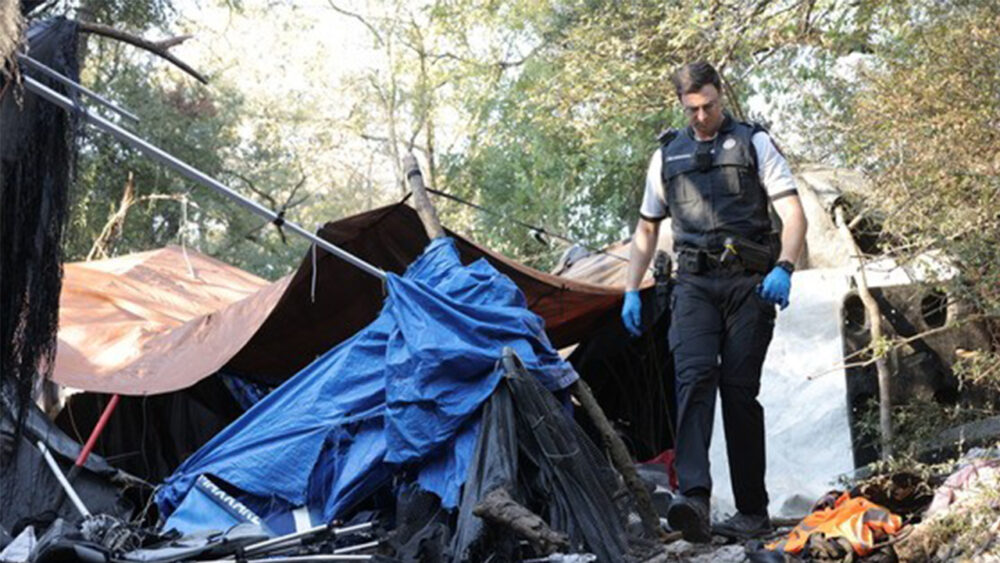Gov. Greg Abbott launched a cleanup operation in Austin last week to dismantle homeless encampments, arrest repeat offenders, and remove hazardous debris from public areas — a move some believe could soon come to Dallas.
The multi-agency effort, led by the Texas Department of Public Safety (DPS) in coordination with the Texas Department of Transportation (TxDOT), the Texas State Guard, and the Texas Department of Criminal Justice (TDCJ), has already cleared 48 encampments, removed over 3,000 pounds of debris, and led to 24 felony arrests.
“Texans should not endure public safety risks from homeless encampments and individuals,” Abbott said. “Weapons, needles, and other debris should not litter the streets of our community, and the State of Texas is taking action.”
State officials said several of those arrested had outstanding warrants and described some as armed, dangerous, and exhibiting violent tendencies.
Dallas Faces Similar Challenges
The Dallas Express has documented that while downtown has seen short-term improvement under the “Safe In The City” initiative, shelters are strained citywide, and the city’s homelessness program lacks clear accountability.
A June 18 performance audit found the Office of Homeless Solutions does not define quantifiable outcomes for its Four-Track Strategy and has limited validation of contractor performance, with coordination gaps between OHS and Housing Forward strategies.
Meanwhile, unregulated weekend street feedings have contributed to litter and disorder downtown. City guidance requires groups to notify Dallas 24 hours in advance if serving more than 75 people, or within 48 hours after if 75 or fewer, and to follow food-safety rules. As of July 15, 2025, city communications said no citations had been issued under those provisions despite increased supervision.
Downtown enforcement and rehousing efforts continue, but shelter leaders report rising demand and capacity constraints, suggesting pressure is shifting to other parts of the city. The Bridge Homeless Recovery Center president, Dr. David Woody, told The Dallas Express his organization is “on the way to see probably as many as 8,000 people this year.”
Could a State Cleanup Come to Dallas?
Abbott’s willingness to deploy state agencies to clear encampments in Austin comes as Dallas continues to fall short of voter-mandated public safety standards under Proposition U, which requires competitive police pay and minimum staffing levels.
City leaders have also begun making incremental moves to address public disorder downtown. On October 21, the Dallas City Council approved a new “Good Neighbor Agreement” with The Bridge Homeless Recovery Center, transferring responsibility for street sanitation and policing around the downtown shelter back to city departments. The vote follows years of complaints about unregulated street feedings and trash buildup that left the nonprofit managing what many described as a public-safety burden.
The timing of the council’s action underscores a growing contrast between state-led enforcement in Austin and local efforts in Dallas, where officials are only now reclaiming core cleanup and enforcement duties from nonprofits.
City Council Member Cara Mendelsohn has repeatedly criticized Dallas’ approach to homelessness, saying residents are “fed up of hearing homelessness is decreasing when they see it every single day,” as The Dallas Express previously reported this past June. She has called for greater enforcement of existing ordinances and accountability for how taxpayer funds are spent.
With Austin showing quick results under state leadership and Dallas still struggling to manage its own programs, many now wonder whether Abbott’s next public-safety operation could be headed north.


